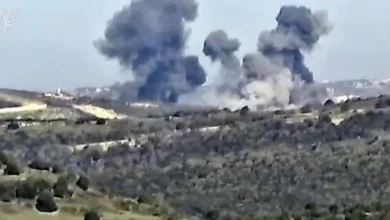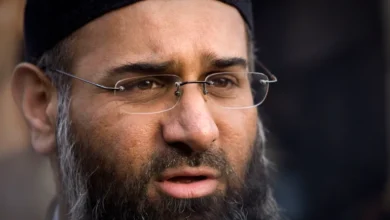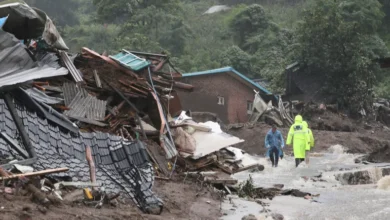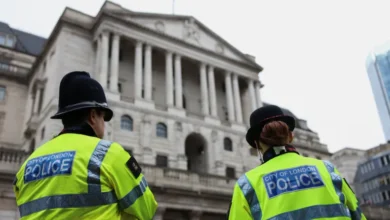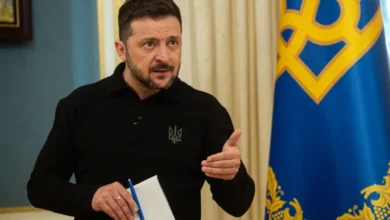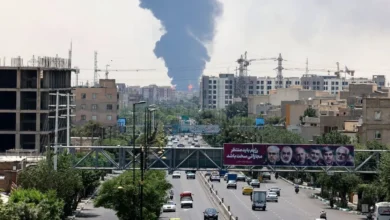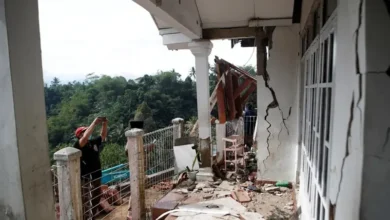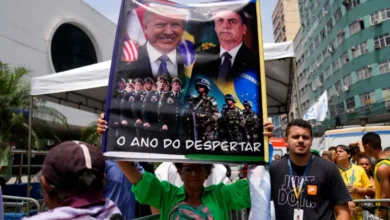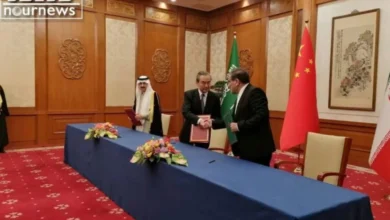‘Giving up is not an option’: Volunteer doctors at Al-Aqsa Martyrs Hospital
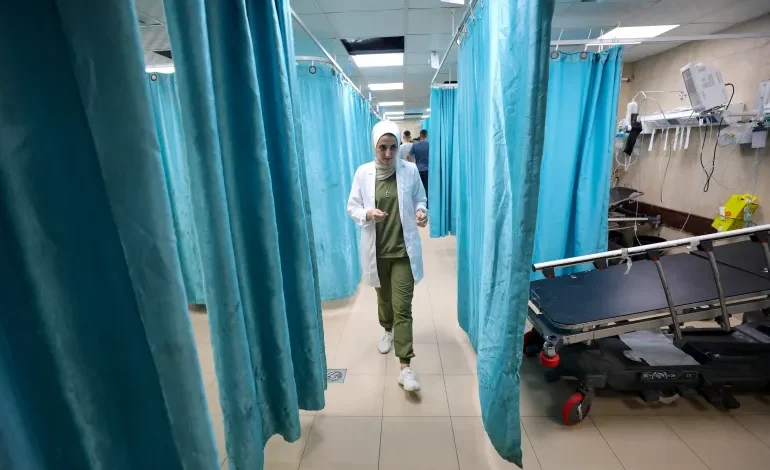
Abdelrahman Abu Shawish did not expect to be making life-altering decisions for his patients so soon after graduating from medical school at Gaza’s Azhar University.
The 25-year-old, who lives with his family in the Nuseirat refugee camp, began volunteering in the surgical department of Al-Aqsa Martyrs Hospital on October 10 and found himself deciding whether a wounded person requires a full or partial amputation of their limbs.“The injuries that I saw in the [May] 2021 war more or less looked the same,” he told Al Jazeera. “But this time around, I’ve seen so many different types, from varying degrees of burns to amputated limbs, to deep lacerations and different types of shrapnel.”
The hospital, which was meant to serve the central town of Deir el-Balah, has become the Gaza Strip’s main treatment facility due to the complete collapse of hospitals in Gaza City and northern Gaza.
Nearly two-thirds of the strip’s hospitals – 26 out of 35 – have stopped functioning following weeks of bombardment by Israeli forces on the territory, which began on October 7. At least 1.5 million Palestinians have been displaced from their homes and the massive aerial and ground assault on Gaza has destroyed much of its infrastructure, including more than half the homes.
Furthermore, the total siege imposed by Israel on the enclave means hospitals have run out of fuel, electricity and clean water.
“We have very limited medical supplies,” Abu Shawish said. “When dozens of wounded people come to the hospital as a result of an Israeli attack, we often can’t treat them all at once because we need to sterilise our tools as we don’t have enough.”
The lack of resources means doctors can do little more than the minimum required to keep their patients alive. Proper treatment is out of the question.
“We’re unable to remove all the shrapnel from a wounded person’s body, only the pieces that threaten their lives,” Abu Shawish explained. “That’s still dangerous, as shrapnel can cause infections that lead to multiple organ failure, but we hope they can follow up once the war is over.”
The young doctor, who had studied German in preparation for going to Germany for his residency, said he has had to downgrade his aspirations for his career.
‘No time for rest’
After his family home was destroyed in the Israeli shelling of the al-Zahra neighbourhood south of Gaza City, Mohammad Abu Salem began volunteering at Al-Aqsa Martyrs Hospital on October 19 and has only seen his family twice since then.
Also just 25 years old, Abu Salem, who specialised in physiotherapy at the Islamic University in Gaza City, said Israeli massacres of Palestinians have become an everyday reality in the Gaza Strip.
“I knew working in a hospital in general would be hectic, but working in a hospital during a war is on a whole new different level,” he said. “You don’t know what is going to happen tomorrow, whether you will live or die. But giving up is not an option.”
The physiotherapy department sees all patients after their initial treatment in the emergency room, after which they go on to other departments such as the surgical unit or paediatric wing. Abu Salem talks to patients about the nature of their wounds, the complications that might arise, and how to avoid such risks.
“The other day my own brother came in injured – thankfully it wasn’t serious,” he said. “But the stress of treating people you know… can be very debilitating.”
Nearing total collapse
In the emergency room, Alaa Kassab points out patients whose limbs have turned blue, explaining that shrapnel has likely done so much damage that the limb isn’t oxygenating and may need to be amputated.
Incidents like this, especially the large number of children she has seen lose limbs to amputation, have impacted her to the point where she is not able to speak sometimes.
Instead of talking to her family at home, she needs to sit in silence to recover most days.
Kassab finished her medical studies at the Ain Shams University in Cairo and returned to her hometown of Deir el-Balah last February.
“I had this dream of finishing my medical internship year, then travelling overseas to complete my studies by specialising, before eventually going back to Gaza,” she said. “What I’ve seen in the past two weeks since volunteering has only made me more determined to be a doctor.”
The hours are long and gruelling, and Kassab has never seen some of the wounds she is having to treat now.
“There isn’t a day where we can rest,” she said, adding that she works from noon until 3am the following day. “The number of wounded people never lets up. It’s why I decided to volunteer, because I knew that doctors are under an immense amount of pressure and the situation is very tough.”
Kassab said the hospital is nearing a total collapse of services. Without enough surgical tools, fuel, medical supplies or personnel, they will soon not be able to treat any more patients, she said.
“Of course, I am here to serve my people, and I don’t regret that for a second,” she said. “But the situation in the Gaza Strip is very bad.”
